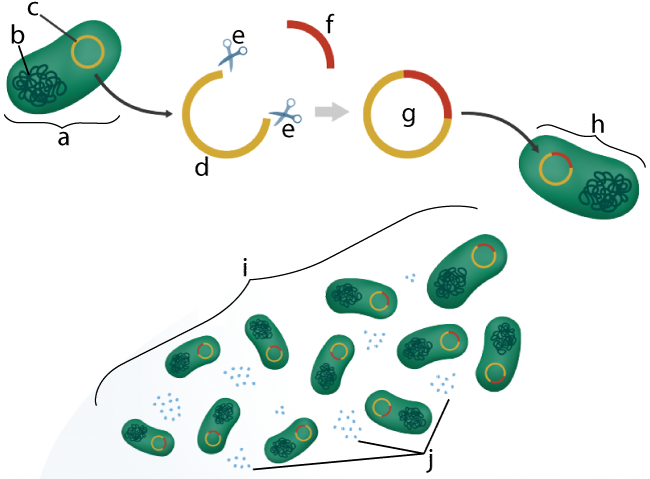
Many examples of engineering can be found throughout history, from ancient monuments to modern technology. Ancient Egyptians, for example, credit Imhotep with building a step pyramid in Saqqara. Imhotep was credited with building the Saqqara step pyramid, which was completed in 3000 BC. Egyptians then deified him. This ancient Egyptian engineer may be familiar to you, but did know that he was also an Egyptian deified god.
Ancient engineering monuments
Many ancient engineering monuments can be seen as proof of the talent of humans. The pyramids of Egypt, ziggurats of Mesopotamia, and Pharos of Alexandria are testaments to ancient Egyptian civil and military engineers. Acropolis, the city of Indus Valley civilization, and other ancient engineering monuments are examples. Ancient Greek and Roman engineers left behind monuments such as the Acropolis and the Colosseum. Amazing structures created by Mayan civil engineers, such as the drainage and aqueduct systems at Teotihuacan, Mexico. The Turkish engineering monument, Al-Jazari, was constructed with five water pumping machines for the kings of the Artuqid dynasty. Others engineers like Mechanics developed the concepts for gears, escapement mechanism, and more.
Early mechanical engineering
The origins and development of mechanical engineering can be traced back to Mesopotamia in the 5th Millennium BC. The field has expanded greatly over the years, encompassing everything from automobiles to energy conversion to microelectromechanical systems. The history of mechanical engineering teaches that it was never as simple as it is today. It doesn't matter whether you are interested manufacturing equipment, automobiles or energy conversion; mechanical engineering has influenced many aspects in our lives.

Early electrical engineering
After World War I, the relationship between electrical engineers with government officials was especially complicated. Although radio was used for communication during wartime, this new technology required strict government regulation. The United States government assumed control of all wireless channels in 1917. This was because the radio spectrum was so valuable that it could not be left uncontrolled. It was the beginning of a boom in technology, which changed how we communicate. You can still see the history and impact of electricity in New York City today.
Early radio technology
Radios were initially used for simplex communications in the early 1900s. Morse Code, which was similar to the code used for writing, was used to send messages. These communications were only one-way and could not be heard over the other. Although radios were limited in their capabilities, the concept of sending electric waves over large distances was revolutionary. Without a new technology, long-distance phone lines were not possible.
Early electric generators
The invention of the electric generator, which was an engineering marvel, made it possible to generate electrical power with very little effort. Hydroelectric power was first explored in the Sierra Nevada hydraulic mines during the 1880s. Almarian Decker, an engineer from the Brush Arc Light Company, who had recently moved to California with tuberculosis and was now a transmission engineer, integrated generation into the first three phase alternate-current power station in Redlands.
Early electric engineering in the west
The 19th century is the beginning of electrical engineering's history. Alexander Graham Bell and Thomas Edison were two of the most prominent people in the field at the time. They were among the first engineers to specialize on electricity as it spread quickly. The rise of the electrical industry changed the world and government became a large employer of electrical engineers. While the TVA was the most famous of government initiatives in this area, local governments also provided service and power.

Santa Clara's early days of electrical engineering
Santa Clara University's School of Engineering, which was established in 1912, began to offer bachelor's degrees. The school later expanded its offerings to include master's and doctoral programs. The school is now open to all of Silicon Valley. It offers a diverse range of programs in electrical engineering, including advanced degree programs. In addition, there are many opportunities for networking and continuing education. It is the only national organization that is exclusively dedicated to electrical engineering.
Early electrical engineering was in England
The birthplace of electrical engineering was England. Many of the pioneers of this field were born in the UK, including George Stephenson (Isambard Kingdom Brunel) and Thomas Telford. The first demonstration of electrical energy being converted to mechanical energy was made by Michael Faraday in 1821. This helped cement the field. In addition to these pioneers, the UK also had many other important contributors to the development of the field.
Early electrical engineering in the United States
Electricity is not a new technology. However, many other jurisdictions saw it as a necessity. Governments began to assume responsibility for providing power and communication to its citizens and became major employers of electrical engineers. Although the TVA is perhaps most well-known government initiative in this field, there were many others. Government control of power supply and communication was the norm, even outside the USA. Electrical engineers realized the importance of developing their field with technological advances.
FAQ
What does a Chemical Engineer Do?
Chemical engineers use math, science, engineering, technology, and business skills to develop chemical processes, products, equipment, and technologies.
Chemical engineers can choose to specialize in areas like petroleum refining or pharmaceuticals, food processing, agricultural, textiles and paper, mining, metalurgisty, and power generation.
They work closely together with scientists and other researchers to solve technical difficulties.
Is it necessary to have a degree in order to become an engineer.
A bachelor's degree is not required to become an engineer. Employers prefer candidates with degrees. Online classes are also available if you don’t have a degree.
What jobs are there for engineers?
Engineers are able to find work in almost any industry, such as manufacturing, transport, energy, communications and finance.
Engineers who are specialists in a particular field can often find employment at certain companies or organizations.
You might find electrical engineers working for medical device manufacturers or telecommunications companies.
Software developers could work for websites and mobile app developers.
Computer programmers could work for tech companies like Google or Microsoft, Apple, Amazon or Facebook.
What do electricians do?
They design power systems for use by people.
They are responsible for the design, construction, testing, installation, maintenance, and repair of all types electric equipment used in industry, government, and commercial customers.
They plan and direct installation, as well as coordination of activities by other trades like architects, plumbers, and contractors.
Electricians design and install electronic devices, circuits and other components that convert electricity into usable forms.
What is the Most Hardest Engineering Major?
The hardest engineering major is computer science because you have to learn everything from scratch. Also, you must be able to think creatively.
Programming languages will include C++, JavaScript, PHP and JavaScript.
It is also important to understand how computers work. Understanding hardware, software architecture, running systems, networking, databases and algorithms is essential.
Computer Science is the best option to train as an engineer.
Are there any requirements for engineering studies?
No. Good grades in your GCSEs or equivalent are all that is required. Some universities will require applicants to demonstrate certain academic achievement in order to be eligible for enrollment. Cambridge University, for instance, requires applicants to earn A*-C grades (in Maths, English Language or Science)
If you don't meet these criteria, you will need additional courses to prepare for university entrance exams.
You may also need to study additional science and math subjects. Ask your school guidance counselors about these options.
Statistics
- 8% Civil engineers solve infrastructure problems. (snhu.edu)
- Job growth outlook through 2030: 9% (snhu.edu)
External Links
How To
How to Use an Engineering Ruler
Engineers use the engineering ruler to measure distances. Engineers have been measuring distances since ancient times. Around 3000 BC, the world's first measured device was developed.
Modern rulers are still used, although they have undergone significant changes. The most commonly used ruler today is the metric ruler. These rulers are marked in millimeters (1mm = 0.039 inch). Most rulers in metric are rectangular in shape, and can be purchased in many sizes. Other rulers may include graduations, millimeters and centimeters. For example, 1 cm equals 2.54 mm.
You won't find engineers today using a traditional manual ruler. They would prefer a digital version that measures millimeters. It works just like a regular scale but with markings that correspond to different length units. More information is available here.